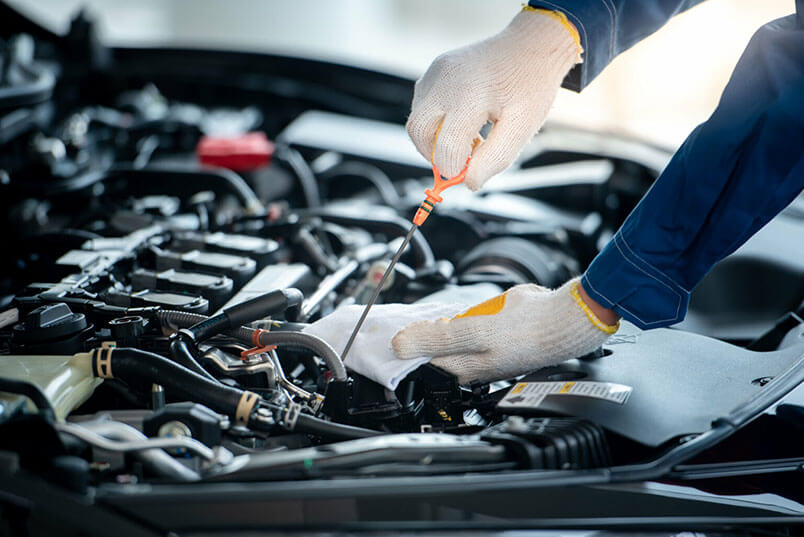

Vehicle maintenance is important in every season. Different weather conditions and road conditions can affect the performance and longevity of vehicles. At Atlas Rent A Car, we pay attention to the maintenance of our vehicles and take all necessary precautions to provide our customers with a safe and comfortable driving experience. Seasonal maintenance ensures that the vehicles run smoothly and prevents potential malfunctions. Here are some important tips for seasonal maintenance:
In the winter months, cold weather can significantly affect vehicle performance. The engine of your vehicle may take longer to warm up in cold weather, which can increase fuel consumption and reduce engine efficiency. The proper functioning of the cooling system and the correct antifreeze level are crucial for the engine to run healthily. The antifreeze fluid needs to be at the right level and fresh to ensure that the engine operates efficiently without overheating. Also, checking for leaks in the cooling system prevents the engine from overheating in cold weather and helps prevent major malfunctions.
The condition of your tires is also very important in winter. Standard tires can make it difficult to maintain traction on snowy and icy roads, leading to skidding and accidents. Winter tires remain softer and more flexible at low temperatures, providing better traction. At the same time, the tread patterns of winter tires help evacuate water and snow, preventing the vehicle from sliding. Changing your tires before winter increases your safety, especially on slippery roads. Additionally, ensuring that the tire air pressure is correct helps extend the lifespan of your tires and improves traction.
In the summer months, hot weather can put a strain on the vehicle's engine and other systems. When your engine overheats, fuel consumption increases, and the engine’s lifespan may shorten. Therefore, it is essential to ensure that the radiator and cooling system are working properly. To prevent engine overheating in the summer, you should ensure that the coolant level is sufficient. Cleaning the radiator and checking for any blockages help prevent engine overheating. In addition, the coolant may need to be replaced, as old fluids can reduce the efficiency of engine cooling.
The air conditioning system is also of great importance in hot weather. The temperature inside the vehicle is a crucial factor for a comfortable driving experience. To ensure the air conditioning works efficiently, the gas levels should be regularly checked, and the filters should be cleaned. Additionally, attention should be paid to ensure that the ventilation channels inside the air conditioning system are not blocked. Regular air conditioning maintenance not only improves the air quality inside the vehicle but also prevents fogging of the windows, supporting safe driving. On hot summer days, a properly functioning air conditioner enhances your driving comfort.
Spring is the ideal time to carry out vehicle maintenance. During winter, the vehicle may have been covered with salt, mud, and other contaminants. Therefore, the exterior and interior cleaning of the vehicle should be done in the spring. The salt accumulated on the road can cause corrosion on metal surfaces, which prevents your vehicle from lasting longer. Spring cleaning helps protect the exterior of your vehicle while also keeping the engine fresh. A vehicle that has been cleaned of the harsh effects of winter road conditions works more efficiently.
The braking system, especially in harsh winter road conditions, plays a vital role. Cold weather, ice, and salt can wear down the brake pads. In the spring, it is necessary to check your brakes, inspect the thickness of the brake pads, and review the brake fluid levels. Additionally, the brake hoses should be checked for any damage. These checks are crucial for safe driving. If any issues are detected in the brakes, they should be addressed immediately. Slow-responding brakes can jeopardize safety on long distances.
Fall is the most suitable time to prepare for winter. Before entering winter, the vehicle’s engine, cooling system, and tires should be checked. Harsh weather conditions in winter can negatively affect your vehicle's performance. The engine oil may thicken in cold temperatures, causing the engine to start with difficulty. Therefore, an oil change should be done in the fall, and the overall condition of the engine should be reviewed. In addition, the antifreeze levels should be checked. Sufficient antifreeze ensures that the engine operates efficiently and prevents overheating.
In the fall, checking the headlights and lighting systems is also very important. As the days get shorter and weather conditions change, having properly working headlights becomes a major safety factor. Over time, the brightness of headlights can decrease, shortening the visibility distance at night. Aligning the headlights ensures that they provide light at the correct angle, preventing accidents. In addition to the headlights, it is important to ensure that brake lights and turn signal lights are also working correctly. Properly functioning lighting systems increase driving safety and help other drivers notice you more easily.